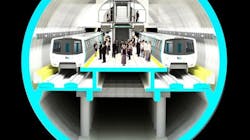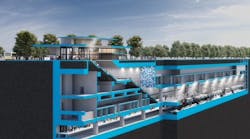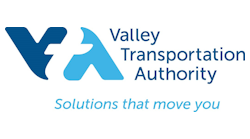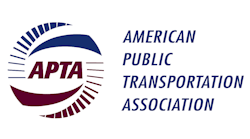Independent panel confirms BART Phase II single bore tunnel the right approach
The Santa Clara Valley Transportation Authority (VTA) Board of Directors were presented with the results of an independent review panel that examined if the authority’s single bore tunnel design for the second phase of a planned rail line into San Jose and Santa Clara was the right approach. In short, the panel confirmed it was.
“We are pleased that our design and engineering plans have received this important review and endorsement. This confirmation fuels us to push ahead with the most important transportation project in our region, bringing BART around the bay through Silicon Valley,” said VTA's General Manager and CEO Carolyn Gonot.
The independent panel consisted of tunneling experts, led by the American Public Transportation Association (APTA). The panel’s work was presented at the VTA Board Meeting on November 3 and shows Santa Clara VTA’s cutting edge tunneling methodology along with some of the proposed design innovations is deemed to be feasible, appropriate, safe and efficient.
APTA was engaged to coordinate an independent review of the project’s tunneling method as part of a design review request from Santa Clara VTA Board member and San Jose Mayor Sam Liccardo, approved in May by the VTA Board of Directors. The findings of a previous independent comparative analysis of both tunneling methods in 2017 helped lead to the single bore approach and current concept.
Single bore tunnels are increasingly being utilized for transit projects in Europe and Asia, with recent projects in Spain, France, Dubai and the Netherlands.
This single bore approach by VTA to build the six-mile BART extension will save construction time, reduce the station footprint and property needs, increase the potential for transit-oriented development, reduce disruption to city streets, neighborhoods and businesses. The approach reduces many of the environmental impacts occurring during construction. In addition to losing the aforementioned benefits, changing to a twin bore tunnel project would cause significant schedule delays and cost increases.
The study included review of trade-offs between the single bore and twin bore designs related to safety, passenger experience, cost, and schedule. It was informed by extensive project documents and past studies, recent global tunneling projects, and a key proposed innovation from Kiewit Shea Traylor, the joint venture contractor for the tunnel and trackwork.
This peer review provided VTA with expert advice, confirmation of industry best practices, and a recommendation from highly experienced and respected transit professionals.
Mass Transit Staff Report
Stories under this byline were produced through a team effort by the editorial staff of Mass Transit.
To learn more about our team, click here.
If you have a story idea, let us know by emailing editors@masstransitmag.com. Please review our contributor guidelines found here.





